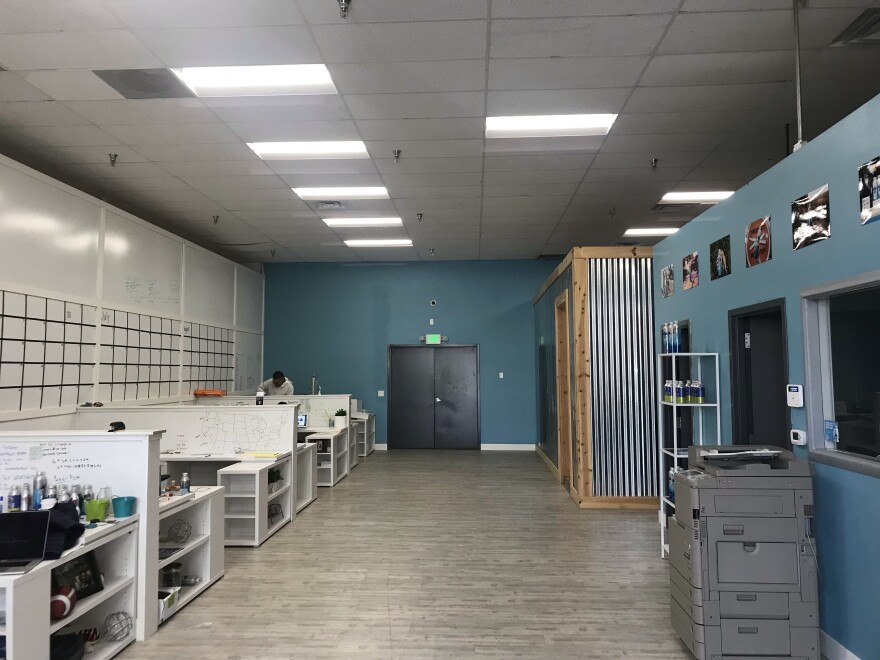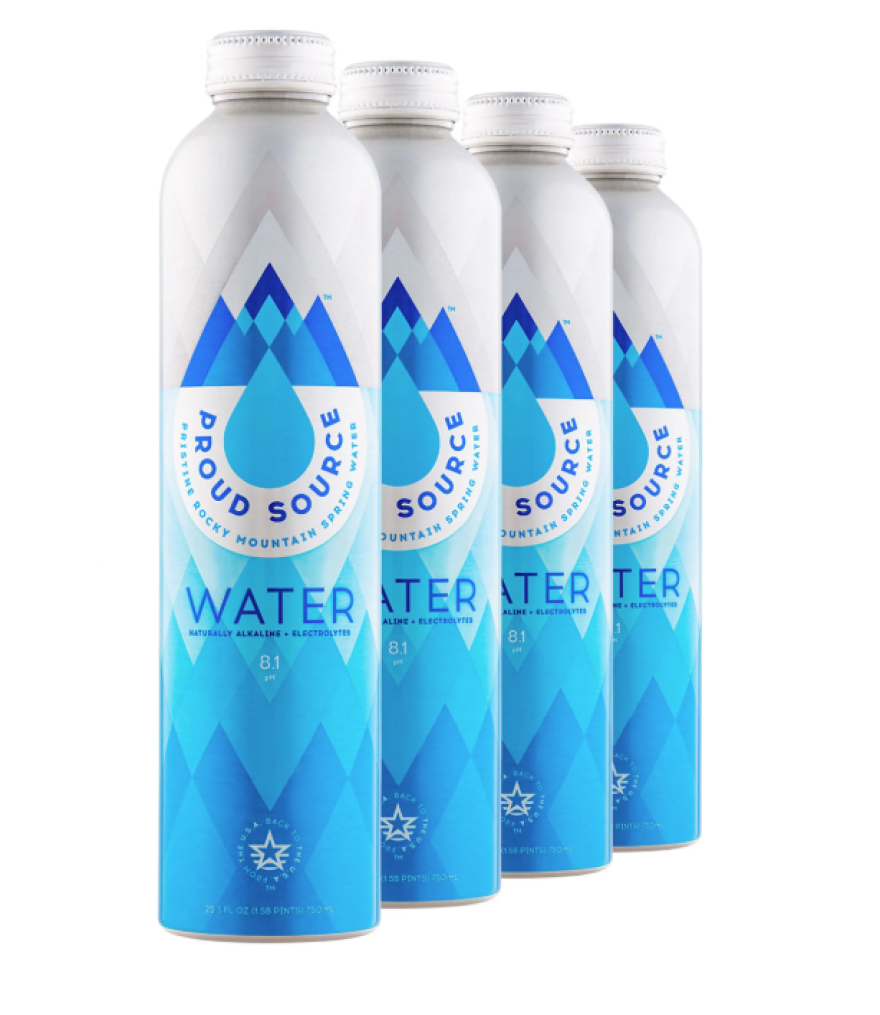Earlier this fall, San Francisco International Airport banned the sale of plastic water bottles. SFO is instead stocking its shelves with alternatives: bottles made of aluminum, glass or compostable material.
One Idaho-based company is making its mark on the industry: Central Idaho spring water can now be found lining shelves across the nation. But instead of plastic, the water is packaged in brushed aluminum bottles with Proud Source Water’s bright blue logo.
“Mackay, Idaho is situated deep in a valley surrounded by the Rocky Mountain Range,” a Proud Source promotional video shares. “This land is our home. We want to help preserve our environment."
Proud Source started bottling in 2017 as an alternative to plastic water bottles. Now, it is one of San Francisco International Airport’s chosen plastic bottle alternatives.
SFO spokesperson Doug Yakel says plastic water bottle use has been a problem at the airport for years. Now, this ban is part of its goal to send zero waste to the landfill by 2021. The airport set this goal three years ago, but couldn’t ban the bottles until now.
“Back then there really weren't a lot of good alternatives to plastic water bottles, we almost had to wait for the industry of alternatives to start maturing a little bit,” Yakel said
Eric Goldstein, a lawyer and solid waste expert at the National Resources Defense Council, says replacing plastic is a noble goal.
“There’s not a place on earth that hasn’t been overwhelmed in one way or another by plastics,” Goldstein said.
Plastic, though technically recyclable, is not often actually recycled in the U.S. And now that China is limiting what plastic they’ll accept for recycling, the need for alternatives is growing.

Plastic bottles started as an innovative solution to packaging carbonated drinks— they were a lightweight and cheap alternative to the glass and aluminum bottles of the time. The plastic bottled water trend took off in the 1980s. National Geographic reports that more than a million plastic bottles are sold every minute across the globe.
Now, companies like Proud Source Water are returning to the same alternatives that plastic initially came along to replace.
“When you are recycling aluminum as opposed to manufacturing virgin aluminum from bauxite, you save 95% of the energy involved in the process," Goldstein said.
Plus, aluminum can actually be recycled and manufactured into new bottles and cans an infinite number of times. Plastic polymers, on the other hand, are degraded with each recycling cycle.

But aluminum bottles are still more expensive to make than your typical plastic jug, which means they cost more for the consumer, about three dollars a bottle more. Because of this, Proud Source puts themselves in the premium water market.
Pround Source Water's CEO CJ Pennington and COO Andrew Piron discuss: "This is not a ‘we need to own the entire water shelf’ situation, right. It’s taking a leadership position. And to do it right. It's really just trying to do what's right and be leaders."
There are now dozens of plastic water bottle alternatives, including those made by big names like Dasani, Evian and San Pellegrino. SFO also installed more reusable bottle fill stations, a move that Goldstein at the NRDC applauds.
“Make no doubt about it," he said. "The absolute best choice is to use refillable containers.”
National Geographic even reports that drinking plastic bottled water takes 2,000 times as much energy than tap water.
Back in San Francisco, the airport was selling around 9,000 plastic bottles each day before the ban. But even so, plastic bottles holding soda and juices line the shelves at SFO, and plastic is still allowed for very large water bottles. The reason for this, Yakel says is because of the lack of good alternatives.
"Our hope is that this industry continues to grow and mature to the point we can expand this policy to include all beverages.”
Proud Source Water sees their company as part of this movement to recognize environmental challenges and propose solutions.
“Consumers have a larger voice than they realize," Piron said. "And that's putting a good amount of pressure — an appropriate amount of pressure — on businesses.
That consumer voice is seen in the fact that companies like PepsiCo and Nestle have promised to increase recycled content in their plastic packaging over the next several years.
It’s also seen in that growing list of alternatives that allowed SFO to implement this ban in the first place. Countries and cities around the world are enacting legislation to limit plastic disposable use.
But back in Idaho? Our 2016 ban on future laws targeting plastic bottles and bags strays from global trends.
Supporters of the ban say its goal is to support business, but time will tell how consumer interests might change the state’s attitudes towards plastic.
Editor's note: This article and audio story originally gave an incorrect price estimate for a bottle of Proud Source water. The text and audio have been corrected.
For more local news, follow the KBSX newsroom on Twitter @KBSX915
Copyright 2019 Boise State Public Radio



